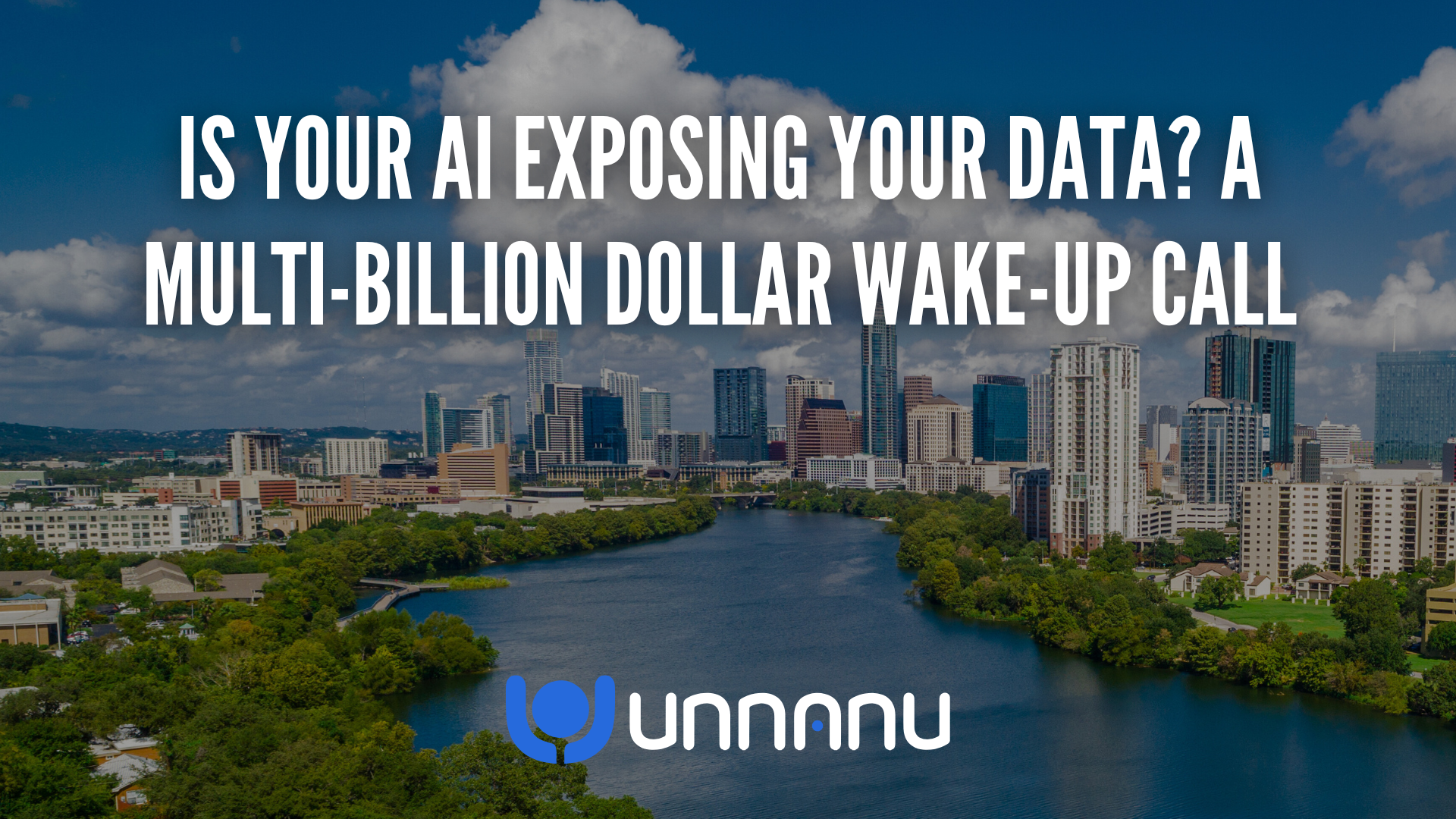In the exploding AI landscape of 2025, where the AI market has surged past $638 billion, the real risk isn't just building smarter models, it's safeguarding the data fueling them. The data privacy software market is projected to hit $5.37 billion this year and balloon to over $45 billion by 2032, signaling a massive shift: the next decade's battleground is data protection.
Enterprises feeding sensitive information into public large language models (LLMs) without safeguards are inviting catastrophe hackers, leaks, and crippling lawsuits.
What Does It Mean for AI to Expose Your Data?
AI exposure happens when enterprise data, customer PII, intellectual property, or financial records—leaks through unsecured models or third-party APIs. Public LLMs, while powerful, often retain inputs for training, creating vulnerabilities.
In hybrid cloud environments, this risk amplifies: 70% of breaches stem from misconfigurations, per recent reports, costing averages of $4.45 million per incident. For businesses, it's not just financial—brand erosion and regulatory fines under GDPR or HIPAA can devastate trust. The wake-up call? Without private, auditable AI, your "superpower" becomes a liability.
Why Is Data Privacy a Multi-Billion Dollar Imperative in 2025?
The stakes couldn't be higher. With AI adoption skyrocketing, data privacy isn't optional—it's existential. The market's growth reflects surging demand for tools that encrypt, anonymize, and audit AI interactions, projected to grow at 35% CAGR through 2032.
Enterprises face escalating threats: ransomware attacks rose 93% in 2024, and AI-specific exploits like prompt injection are emerging.
Regulatory pressures compound this, EU AI Act mandates high-risk system audits starting 2025, with fines up to 7% of global revenue. For sectors like finance and healthcare, non-compliance means shutdowns. The multi-billion-dollar imperative? Investing in privacy now averts billions in losses later, turning compliance into a competitive edge.
How Can Private LLMs Prevent Data Exposure?
Private LLMs keep your data in-house, processing queries on secure, on-premise infrastructure without third-party access. Unlike cloud-based models, they ensure zero retention—your inputs never train external systems. Solutions like Unnanu's patented Enterprise AI Search deploy these models with built-in encryption and role-based access, mitigating risks from the ground up.
Key safeguards include:
- Zero-Trust Architecture: Every query is sandboxed, preventing chain-reaction leaks.
- Auditable Outputs: Explainable AI logs decisions, flagging biases or anomalies for review.
- Seamless Integration: Connects to existing stacks like Salesforce or Jira without data migration risks.
For enterprises, this means lightning-fast, relevant answers without compromise—reducing exposure while boosting productivity by 50%.
What Makes SAFE AI Search Essential for Enterprises?
SAFE AI Search, Secure, Auditable, Fair, and Explainable—embeds privacy into every interaction. Unnanu's platform exemplifies this with bias-mitigated algorithms, enterprise-grade encryption, and contextual querying that delivers precise results without over-sharing.
unnanu.com
Data stays walled, never leaving your infrastructure, while conversational AI delivers contextual insights compliant with global regulations. For hiring via Unnanu Hire, it anonymizes resumes to curb bias, streamlining ATS without privacy pitfalls. Visit Unnanu.com for a demo, or explore their LinkedIn for founder insights on ethical AI.
It's not trendy - it's survival.


